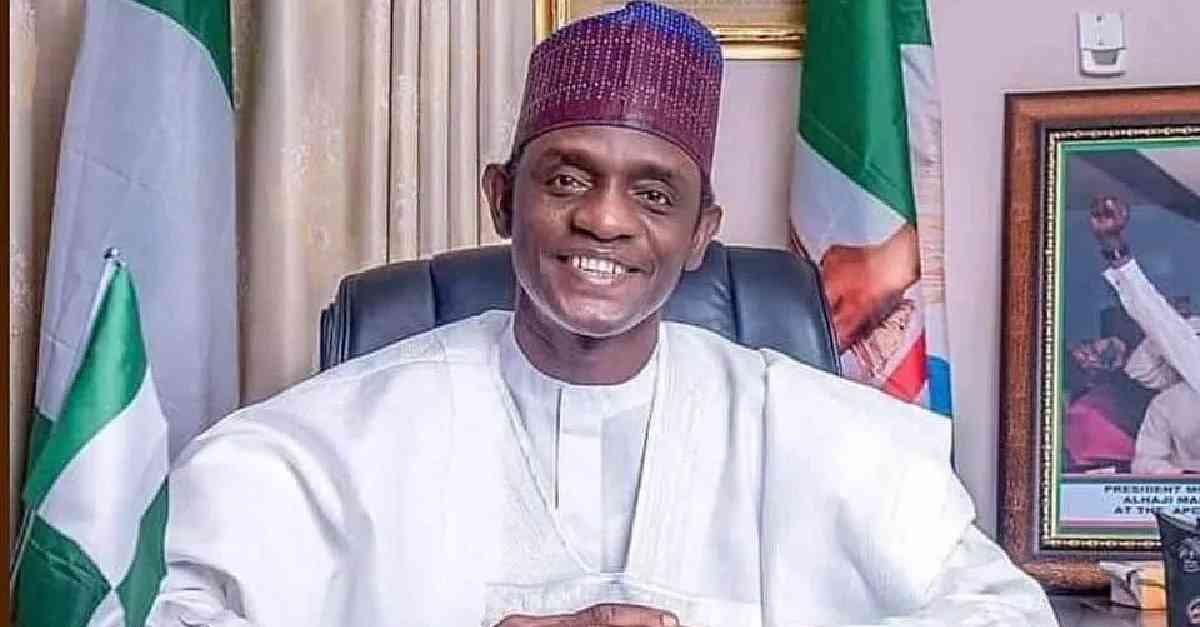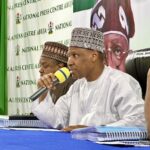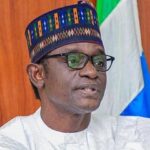Let me commend the civil society here in Yobe State for its hard work and dedication to the ideals of a better, more peaceful society. In ways large and small, the civil society is helping to make our democracy stronger and more diverse.
It is argued that democracy is the best system of government ever invented by man. As a government of, for, and by the people, democracy offers a chance for us all to freely elect our leaders, to demand that those leaders do right by our votes, to hold our leaders to account and to make our voices heard.
This is the point to which I want to turn my attention – how democracy has worked for us here in Yobe since the state was created 29 years ago, and how we might work, as citizens, to make our democracy work even better, and make it more enduring, more resilient, and more reflective of our collective aspirations as a people.
As you know, here in Yobe State, as in other parts of the country, we practice representative, as opposed to participatory, democracy. Each time we reach for the ballot and elect a local government chairman, say, or a member of the state assembly, or a governor, conferring on them the mandate to make decisions on our behalf according to the constitution as we regularly do every four years since 1999, then it is representative democracy in action.
But don’t get me wrong: Representative and participatory democracy are not mutually exclusive. Insofar as it refers to the participation of people in the political, democratic process and in civic engagement, participatory democracy can exist side by side with representative democracy. Through public hearings as occasionally called for by the legislature, and through rallies, and protests, and through the media, for example, citizens always have the opportunity to crowdsource their opinions for elected officials and contribute directly to the decisions that affect their lives. That is participatory democracy!
Looking back, it is now 21 years since the return of democratic rule in the country – 21 years of continuous opportunity to regularly renew our trust in our leaders. There is no question: Democracy has worked for us fairly well here in Yobe State over these two decades.
The institutions of our democracy – the legislature, the judiciary, media, law enforcement, civil society; all these are fully deployed in the service of the people. On its part, the executive branch of the government continues to work even harder to provide basic social services that the people need and that make the society grow stronger, including clean water, affordable healthcare, education, support for agriculture and food production, and security. This is true across all civilian administrations in the state.
Governor Mai Mala Buni has now taken this to a whole new level. The governor is not only making our democratic institutions grow stronger; he is not only opening new frontiers in social service delivery; he is, significantly, opening up the democratic space to more young people than ever before, youths that were largely disaffiliated from a chance to discover and deploy their fullest potentials in the service of society .
Today, thanks to Governor Buni’s effort, the Yobe State government is buzzing and humming with a young and active middle management team, which is doing the state proud with its energy, its enthusiasm, its talent, and its drive for excellence. From the State Emergency Management Agency (SEMA) to the State Scholarships Board, to the SPHCMB, to a slew of other new agencies, such as the focal office for the NEDC created to more positively impact the lives of the people, these young, active individuals are helping to write a new chapter in the annals of Yobe’s public service.
These are significant markers of progress. These are significant milestones for how our democracy has fared over the recent period. Subject to data and statistics, I dare say that the Buni administration has opened up the political space to more young people than any other state administration in the current dispensation in this part of the country.
But there is still more work to be done, as the room for improvement is the biggest space in the world. More work to do for the schoolgirl in Dokshi and the schoolboy in Dapchi who dream to become a doctor or a nurse practitioner, a teacher, or an engineer and is so blissfully excited about what life has to offer. More to do for the young electronics vendor at the Bayan Tasha market or the local GSM market and hundreds more like him who have the energy and the drive and the will to make a difference in their own lives but needed just a little push to turn their dreams into reality.
Our governments here in Yobe State have always strived to provide this opportunity. Governor Mai Mala Buni is currently striving hard to do more and to expand opportunities. Each moment in our history has its twists and turns. But for over 21 years now, our long democratic journey, in my opinion, has been a story of steady upward movement.
As citizens, we all have obligations to make this journey a little livelier, a little more spirited.
As civil society, your first obligation is to continue to work to ensure that we have a well-informed electorate because a well-informed electorate speaks to the capacity of people to exercise their franchise more beneficially. Walter Cronkite, a celebrated former journalist, once said that “our democracy cannot function without a reasonably well-informed electorate”.
The media has a special obligation in this respect. It is to report the news fairly and accurately, to not be involved in sensationalism, and to avoid racing to get the story first in favour of getting it right.
This last point, the one about getting the story right, is particularly important. In the age of social media when most people get their news online from the comfort of their phones, we have to especially work to avoid trumpeting stories that are unverified or that are outrightly false. Fake news fuels conflicts. We must continue to contribute to peace-building by striving to avoid it.
Second, remember that famous line from John F. Kennedy, “Don’t ask what your country can do for you, ask what you can do for your country”? Yes, I know many of you do. That’s a call to action, a call to citizenship. For if we want our democracy to work as well as it should, each of us must dig in and roll up our sleeves. We must participate in the political process and live up to our civic responsibilities. As someone noted, “Democracy is not (always) about what can be done for us, it is about what can be done by us together through the hard and frustrating but ultimately necessary work of self-government”.
Third – and lastly – let each of us be guided by those universal values that we all cherish – the values of honesty, and industry, and tolerance. Throughout history, every society that has prospered or that declined did so partly on the basis of whether these values were upheld and respected or whether they were disregarded and kicked down the road.
Bego is Yobe’s Commissioner for Information and Culture

 Join Daily Trust WhatsApp Community For Quick Access To News and Happenings Around You.
Join Daily Trust WhatsApp Community For Quick Access To News and Happenings Around You.


